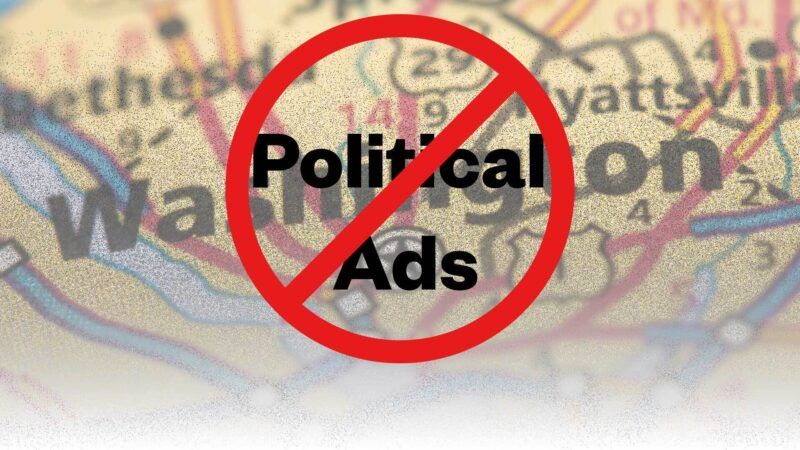Campaign Finance Laws Institutionalize Corruption
Powerful political allies get a pass, while dissenters are crushed with massive fines. This isn’t a flaw in the system—it’s the point.

There's new evidence in Washington state that enforcement of campaign finance laws often isn't about better government—it's about punishing political opponents.
Consider four recent cases there that reveal the system's nature.
The Service Employees International Union Healthcare 1199NW—a union of more than 30,000 healthcare workers across Washington, created by employees to advocate for common interests—failed to report $430,000 in political contributions until after the 2024 election, including $200,000 each to the Kennedy Fund, an arm of the Washington State Senate Democratic Caucus, and the Harry Truman fund, a PAC connected to the House Democratic Caucus.
For such a huge omission, the Washington State Public Disclosure Commission issued a $6,000 fine, with only $3,000 required to be paid—less than one percent of the concealed amount.
Compare that to tax-cut activist Tim Eyman, who was hit with over $8 million in fines, fees, and interest for campaign finance violations. The court acknowledged that the punishment left him "impoverished and almost destitute." His alleged violation was the late filing of campaign disclosures and using campaign funds for personal expenses.
Then there's the massive $18 million fine on the Grocery Manufacturers Association for failing to properly report $11 million in ballot measure spending, despite the fact that the ballot measure committee itself publicly reported the spending. The group challenged the fine as violating the Eighth Amendment's prohibition of "excessive fines," but lost 5–4 at the Washington Supreme Court. The state settled for $9 million after the group threatened an appeal to the U.S. Supreme Court.
The state also penalized Meta Platforms a staggering $35 million despite Meta actively blocking political ads on Facebook. While Meta had implemented algorithms specifically designed to prevent political advertising, a few ads managed to slip through. The company was then fined for allegedly failing to provide certain information about these ads to requesters within 48 hours, despite similar information already being available in candidate-filed reports.
The penalty is absurd: 822 purported violations stemming from just 12 requests by three individuals (some demanding "every political ad shown in Washington State since 2016") resulted in $30,000 in fines and damages per ad, despite each ad costing only a few dollars and Meta's robust efforts to block all political ads.
The pattern is hard to miss. A slap on the wrist for a powerful union aligned with the ruling party that fails to report nearly half a million dollars, while a tax-cut activist is financially ruined, and a trade association and social media platform are fined millions for comparable or proportionately lesser violations.
This isn't aberrant enforcement. It's the system working exactly as designed.
Campaign finance laws are complex and vague, often incomprehensible, creating numerous opportunities for "violations" that can be invented, prosecuted, or ignored at the discretion of bureaucrats. When nearly every speaker could be technically "guilty" of something, enforcement can become a political weapon.
And when the ruling party controls those making decisions about enforcement, the weapon is easily wielded.
The real-world consequences extend far beyond individual cases. Faced with Washington's Byzantine and likely unconstitutional rules, major platforms like Google and Yahoo joined Meta in banning political ads in Washington.
Sadly, this is a predictable result of campaign finance schemes. Complicated rules that touch every aspect of political speech, enforced by partisan bureaucrats with unlimited discretion, eventually become tools of censorship.
The laws don't prevent corruption. They institutionalize it.
Free speech advocates and groups like my organization, the Institute for Free Speech, have warned for decades that campaign finance laws can be and are weaponized against disfavored speakers. Washington again proves we're right. That's why we filed an amicus brief supporting Meta's challenge to this regime at the Washington Supreme Court.
Yet, the true victims of these rules aren't corporate giants that can afford attorneys and fines. Rather, the real victims are grassroots candidates and citizens who lose access to vital communication channels.
As our brief highlights, Chad Magendanz, a former state legislator, testified that Facebook advertising had revolutionized his ability to reach younger voters. When the platform left Washington, outsider candidates like Magendanz lost an essential tool.
The solution isn't "reform" or "better enforcement." You cannot fix a system that is inherently corrupt. The solution is to recognize that political speech—including spending money to amplify that speech—is protected by the First Amendment and should be free from government control.
Washington's enforcement regime demonstrates that campaign finance laws enable corrupt censors. It's time to abandon this failed experiment in favor of a basic constitutional principle that government has no business regulating political speech.


Show Comments (4)